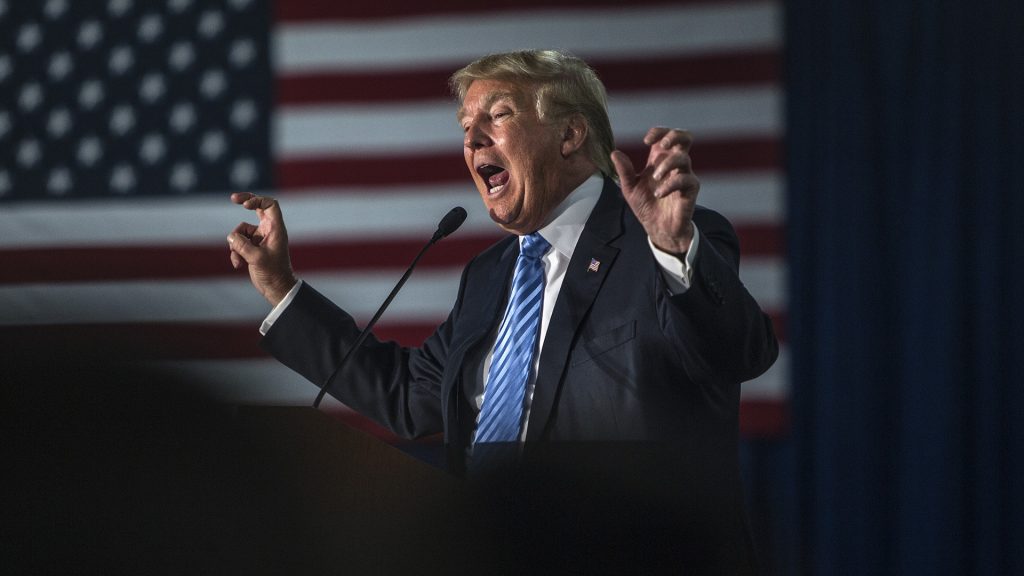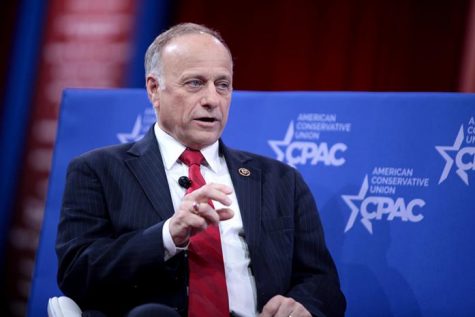Kumar: Birthright citizenship is here to stay
President Trump is attempting to change the immigration process again but won’t be able to without Congress by his side.
Presidential nominee Donald Trump gives a speech inside Mississippi Valley Fairgrounds in Davenport on Saturday, Dec. 5, 2015.
November 8, 2018
It seems as if we can’t go a day without hearing the president talk about immigration, and this time he’s going after birthright citizenship … again. Earlier this year, Trump proposed ending the practice all together, but that would’ve required a constitutional amendment. This time around, he believes he could clarify what the 14th Amendment means when it says, “subject to the jurisdiction thereof.”
RELATED: Helton: Requiring students to take the citizenship test is a smart move
This change would target children who were born in the U.S. but whose parents weren’t here legally. However, even with this distinction, President Trump still won’t be able to get the job done with an executive order.
The words that the president would like to clarify, “subject to the jurisdiction thereof,” are contested because technically if you are here illegally you aren’t, to some degree, under the jurisdiction of the United States, because your allegiance would be to your place of origin. Some scholars hold the view that partial jurisdiction of the United States qualifies for this statement, while others require that full jurisdiction is necessary, which would mean no allegiance to any other foreign power.
RELATED: Kumar: Birthright citizenship is not the saving grace for our immigration system
Traditionally, the United States has always granted citizenship to children born here with parents who are not citizens based on a Supreme Court case from 1898, but even that case did not mention parents who were here illegally, as “illegal” immigration didn’t exist. Yet, citizenship is still given to children with parents who are undocumented because that’s what the 14th Amendment calls for.
Most constitutional scholars believe that to even clarify that statement, someone would need a constitutional amendment, not a bill by Congress. If that’s the case, then the president’s dream of clarification is dead in the water. Trump will never get the two-thirds majority in the House and the Senate and the three-fourths ratification by the states that is needed to pass a constitutional amendment.
Now that the midterms are over and Democrats have a majority in the House (come January), the president is going to have a hard time getting this passed through the usual channels anyway. If he leaves it to Congress to create a bill, it will never pass both the Senate and the House. If Trump does it himself with an executive order, a court could strike it down.
Despite the House majority, many Republicans interpret the Constitution literally and would not be on board with an executive order clarifying the 14th Amendment. If this issue made it to the Supreme Court, however, things could get a little dicey since Justice Brett Kavanaugh’s confirmation. A lot of this is just seeing how it plays out and if the president decides to through with it.
As with most of the president’s immigration policies, the action required is too extreme for anything to really happen. In Trump’s ideal world, if this clarification were to somehow occur, the aftermath would be tragic. Countries that have tried to do this have created mass humanitarian crises. The Dominican Republic is an example of the disastrous effect similar nationalist rhetoric about immigration has.
Revoking birthright citizenship, retroactively or in the future, will create a mass group of stateless people, and the United States is not ready to handle that. Luckily, this order would never hold up.





















